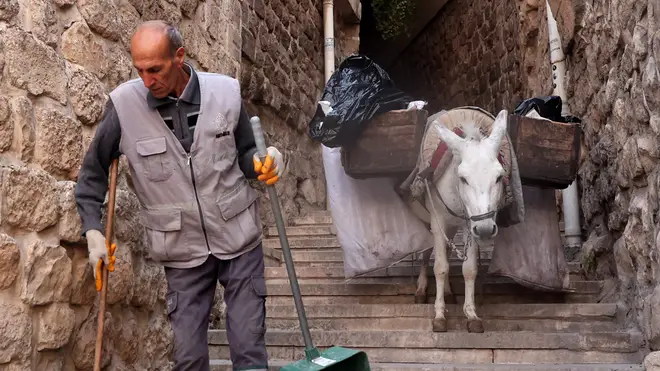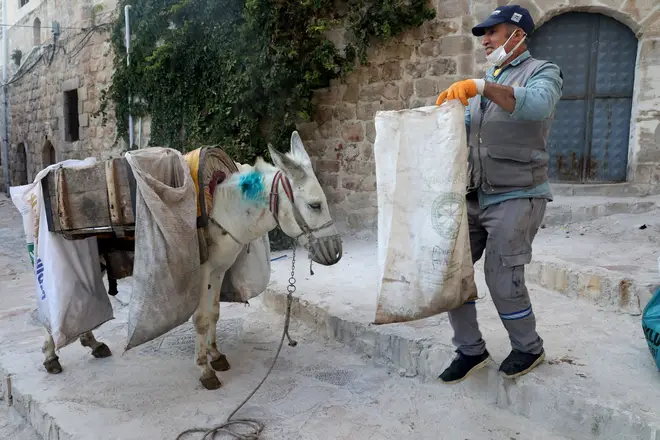On Air Now
Classic FM Breakfast with Aled Jones 6:30am - 9am
16 November 2021, 14:16

The story of how these classical music-appreciating donkeys got stuck in city cleaning jobs, a practice that could soon be phased out due to animal welfare concerns.
Every morning at sunrise, a herd of cream donkeys begin their morning routine cleaning up the streets of the old town of Mardin, Turkey.
It is a centuries-old tradition which sees the animals carrying rubbish through the town’s narrow streets due to a ban on vehicles.
Kadri Toparli, who works for the Mardin old town cleaning team, told the global news agency Agence France-Presse: “We take care of [these donkeys]. Every evening, we play [them] classical music or traditional melodies for two hours.”
He adds, “We see that they are happier when we play a piece of Beethoven”.
Mardin’s old town officials add that for the past few years, they have been working with animal rights organisations in order to monitor working conditions for the load-bearing animals.
Listen on Global Player: Beethoven: The Man Revealed with John Suchet

Old MacDonald in the Style of Beethoven
Mardin has 60,000 residents, who generate almost 10 tonnes of general waste a day, which is carried away by the donkeys.
The donkeys work from 6am to 11am each morning, followed by a three-hour rest, before they return to work from 2pm to 6pm.
“They work an 8-hour day, just like our employers,” explains Toparli. “They are the only ones who can access these narrow streets with so many stairs. Without the donkeys, our job would be impossible.”
The approximately 40 donkeys in the town have two dedicated vets, as well as a larger three to four-person team who look after the herd’s wellbeing. The team play music for the donkeys in the evenings, through specially installed stable speakers.
Each donkey has a name based on their personality, with members of the herd including Gaddar (Cruel), Cefo (Indulgent), and Bozo (Pale).
Read more: Cast ‘went silent’ as Will Smith played Beethoven on piano in Fresh Prince

Donkeys are recruited at the age of six, before being able to retire at 14 or 15, when they are sent to a local animal shelter. The average lifespan of a donkey in the wild is 25-30 years, but domesticated animals can live for much longer.
At the donkeys’ retirement ceremony, the retiring animal gets presented with watermelons and vegetables by fellow workers and the donkey is paraded in front of their stables wearing red ribbons and accompanied by classical music from their stable speakers.
However, Mardin’s old town officials say there have been efforts to phase out the reliance on these creatures, in line with the country’s growing sensitivity toward animal welfare.